Abstract
This study determined whether a two-person exchange situation contained natural contingencies for trusting behavior or whether external contingencies were necessary. Pairs of college students worked matching-to-sample problems for money. On each trial there was one problem and the subjects determined which of them would solve it. Trusting behavior was defined as an increase in the number of consecutive problems each subject allowed his partner to work during sessions that also ended with an equitable distribution. Simply, trust was a temporary deviation from equity. A subject could give the problem to the other person (cooperate), or not respond and let the other person take the problem (share). Other possibilities were for both subjects to try to take the problem (complete), or for neither subject to respond and thereby let the person who worked the last problem also work the next one (passive trust). When only four lever pulls were required to distribute a problem (no external contingencies to reach either equity or trust) subjects reached equity, but only minimal trust (strict alternation of single problems) developed in 18 sessions. When 30 or 60 lever pulls were required to distribute a problem (smaller response requirement for passive trust and therefore a contingency for trust), trusting behavior developed after a few sessions (fixed ratio 30) or after several trials of the first session (fixed ratio 60) and it ordinarily expanded gradually to 10 to 15 consecutive problems through passive trust. The aversiveness of the inequity involved in trusting appears to necessitate a contingency for acquisition. Once trust develops, however, this aversiveness is reduced as subjects learn the inequity is only temporary (e.g., once trust was acquired at fixed ratio 60 it was maintained at fixed ratio 4, which would not initially produce it), and the direction of the inequity appears to become of questionable importance (e.g., being behind was alternated over rather than within sessions and usually not in a systematic manner).
Keywords: acquisition of trusting behavior, maintenance of trusting behavior, minimal trust, maximal trust, cooperation, sharing, expansion of trust, passive trust, competition, verbal negotiation, humans
Full text
PDF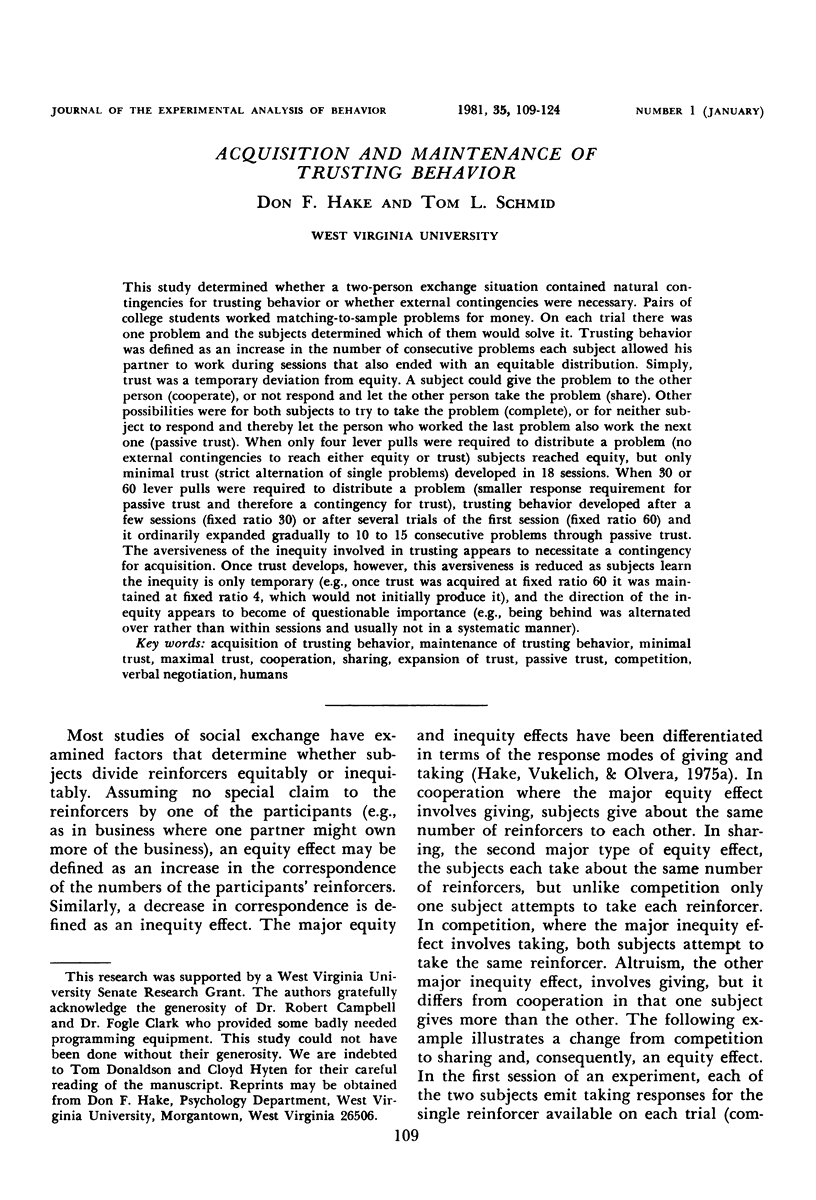
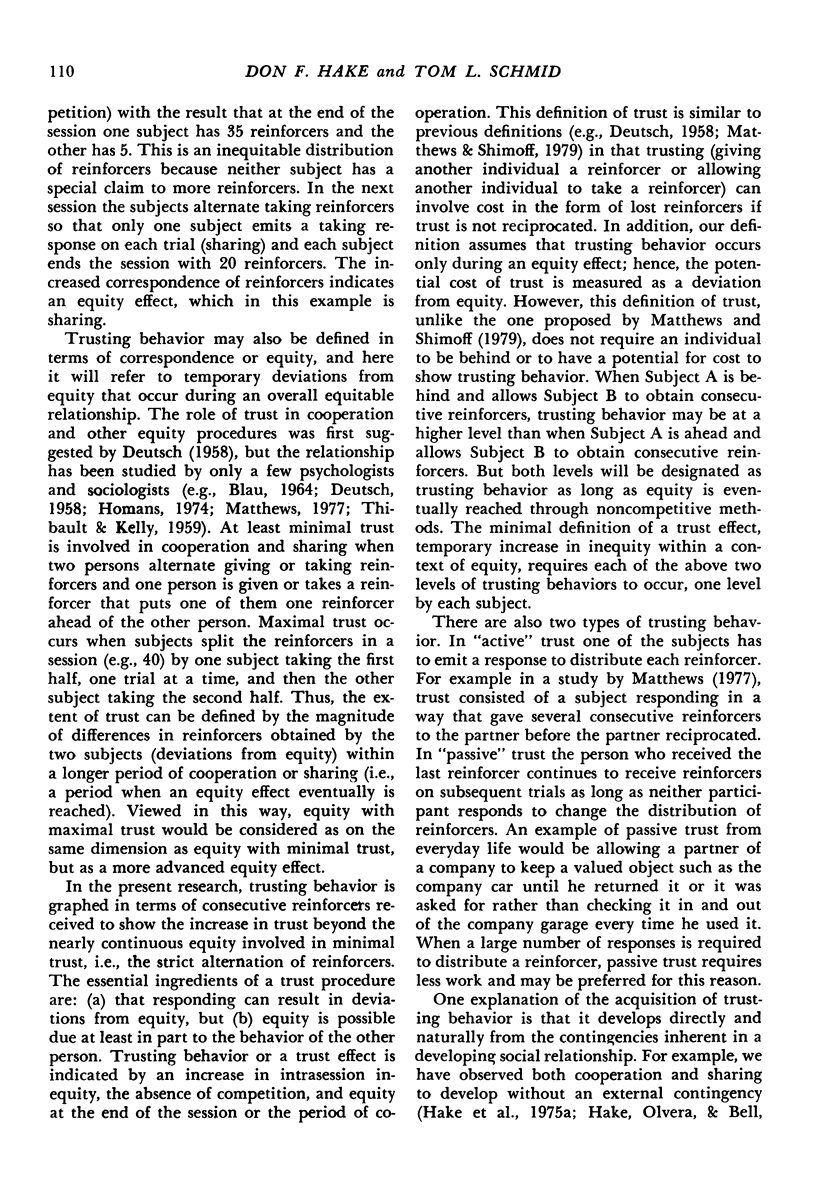
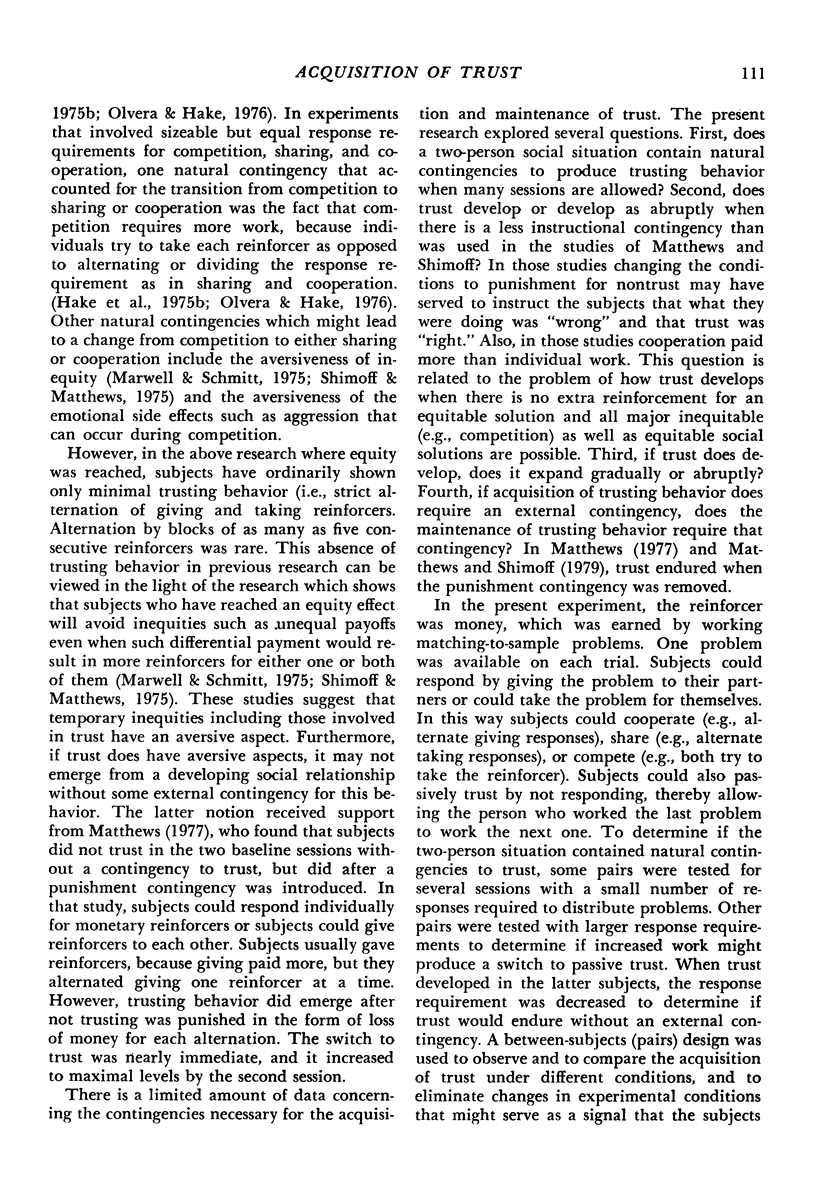
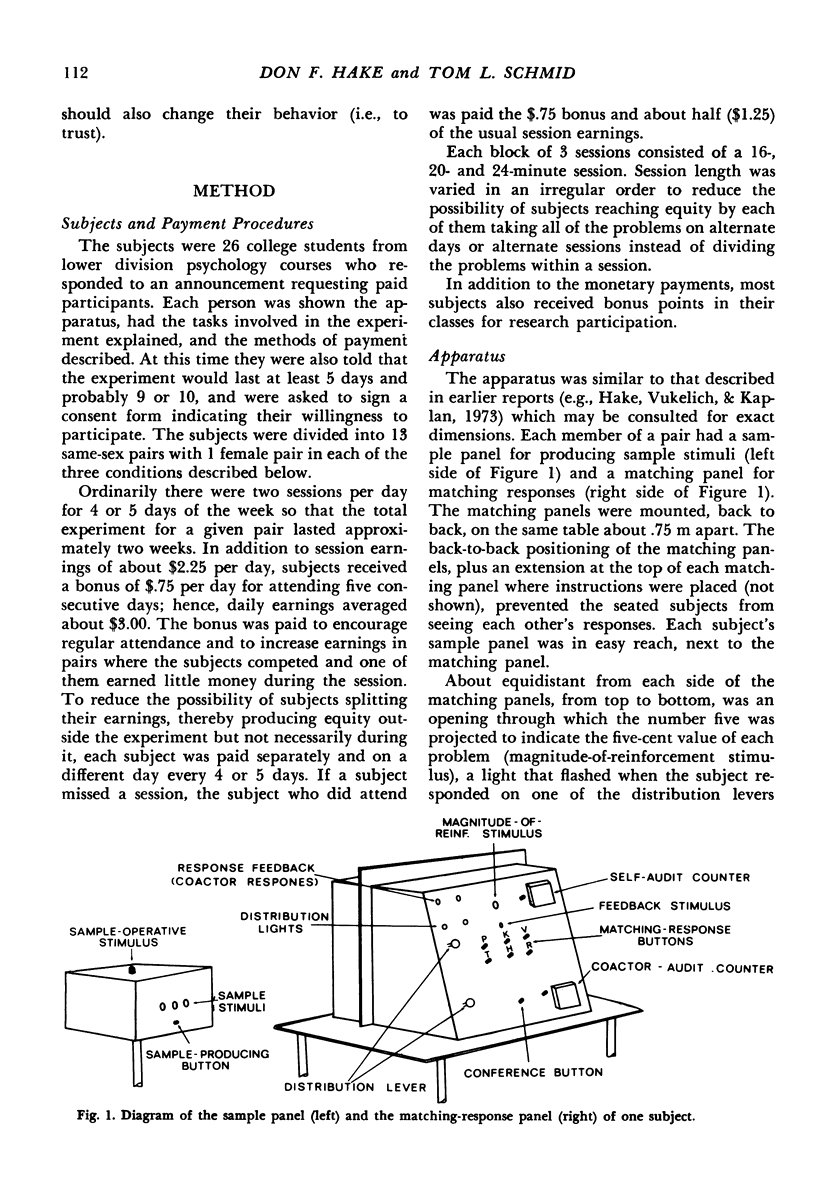



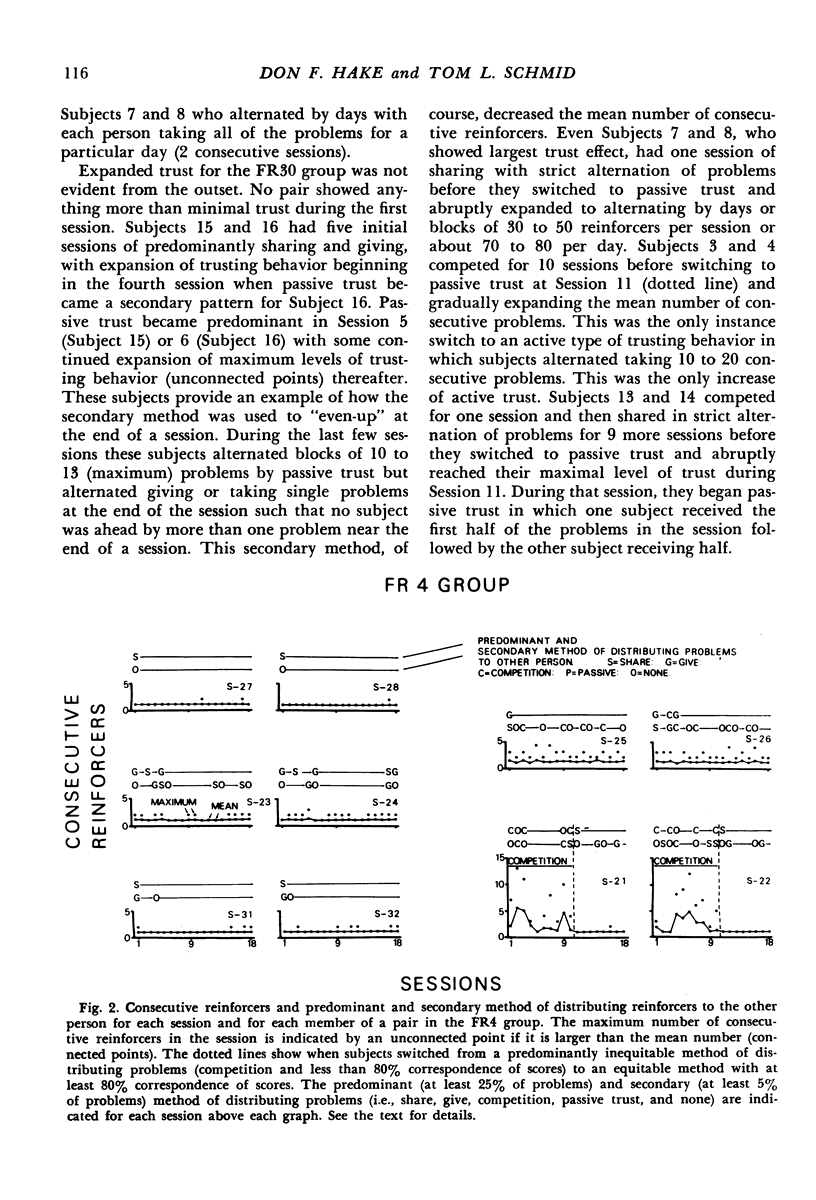



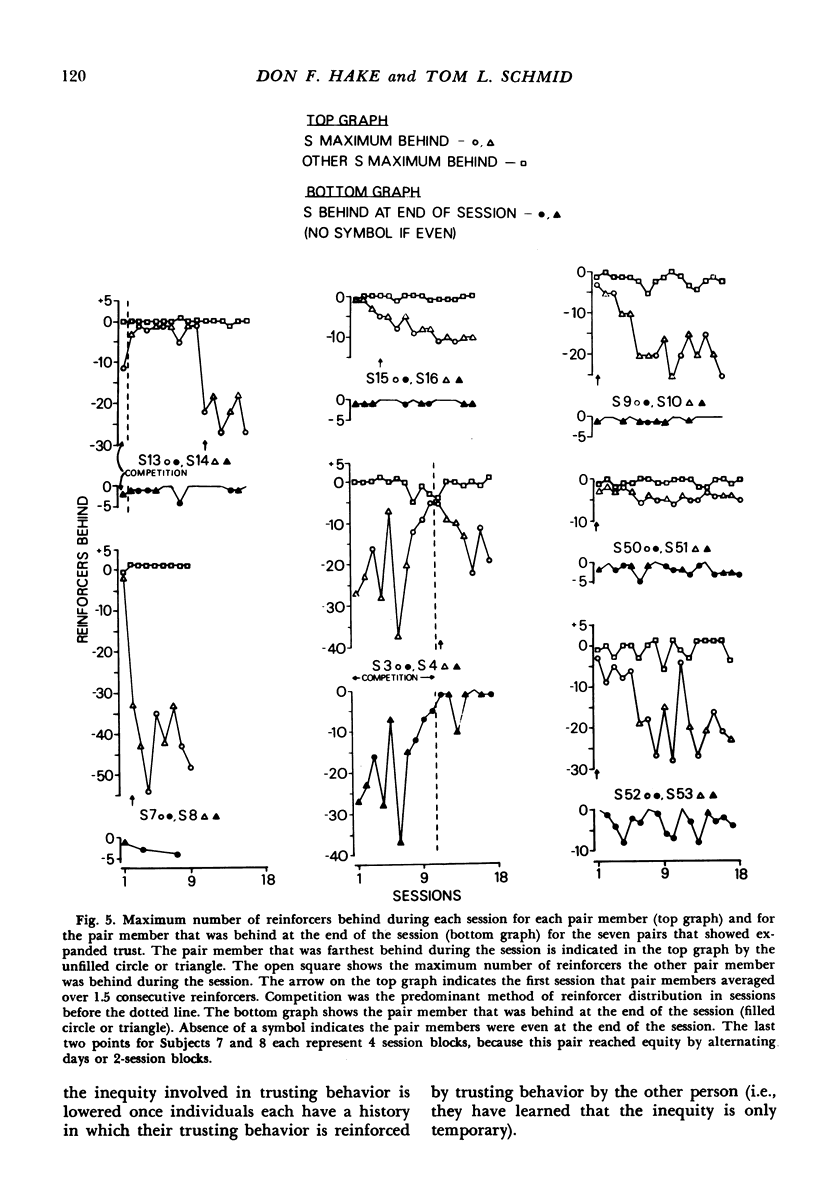
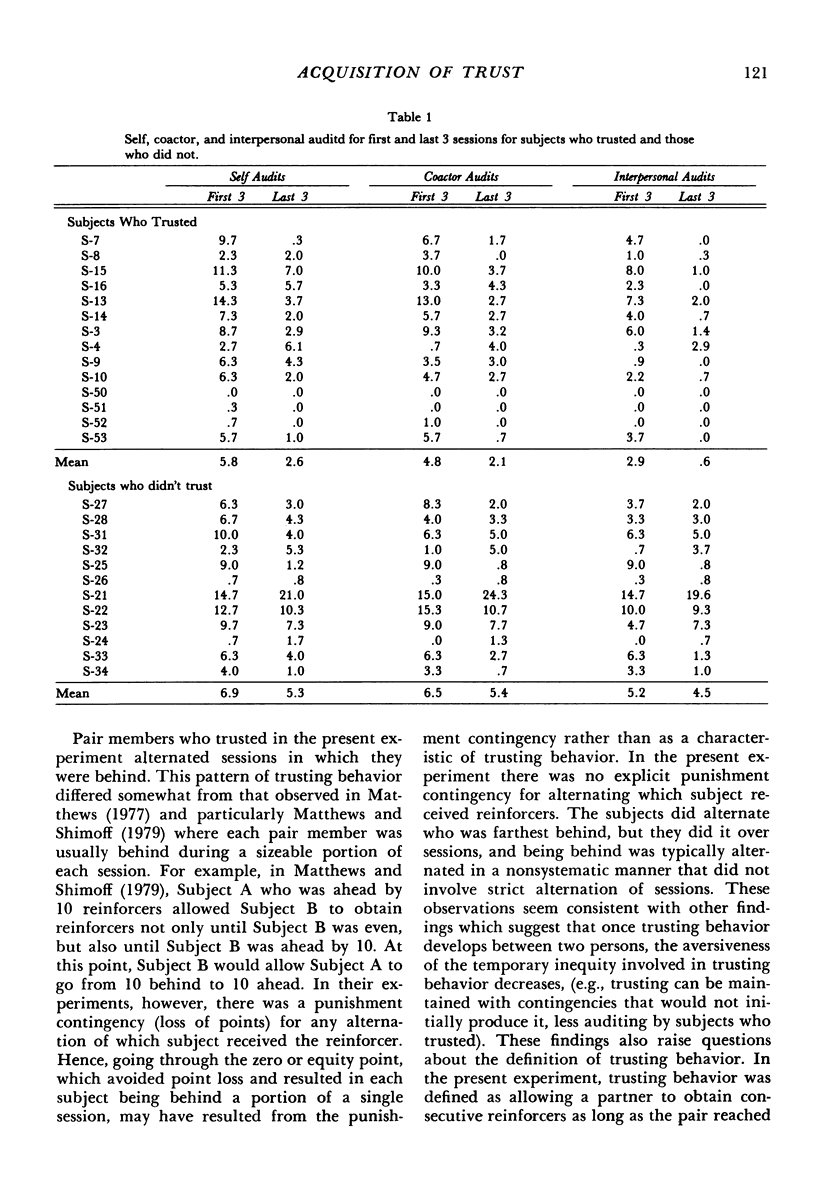

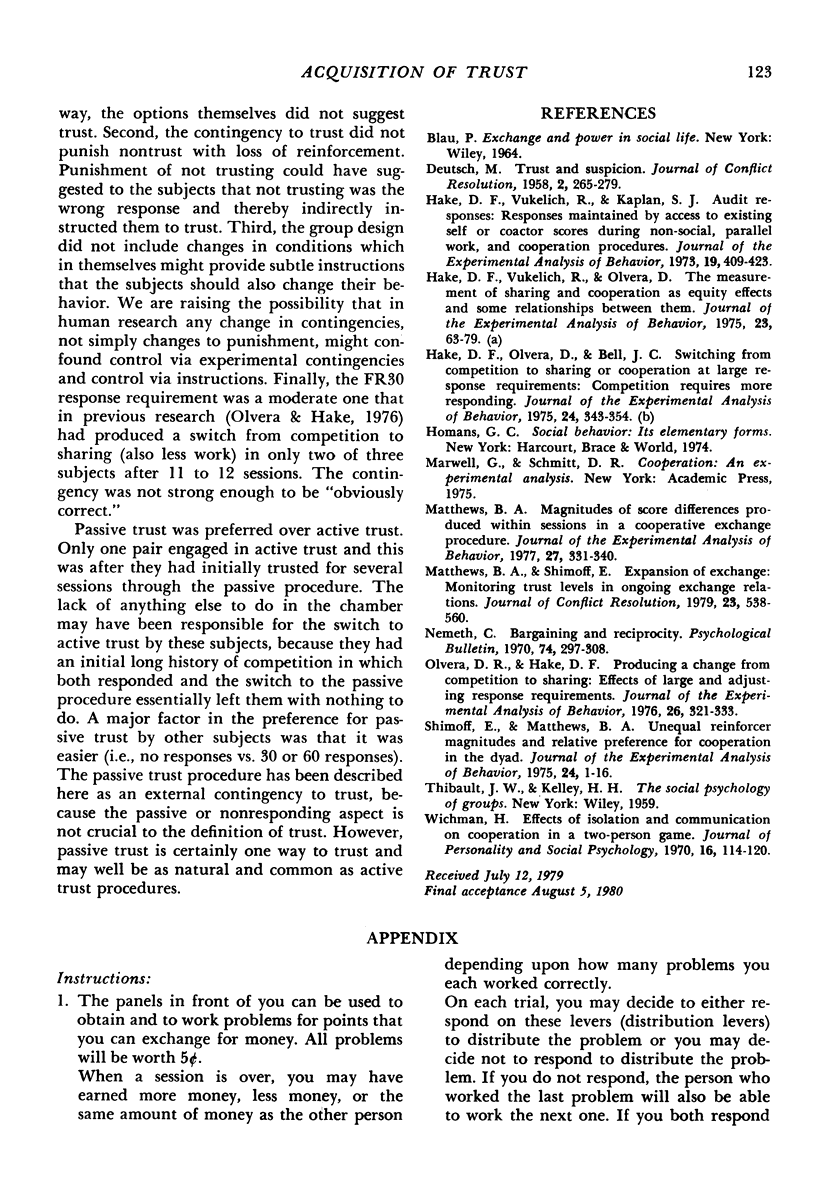
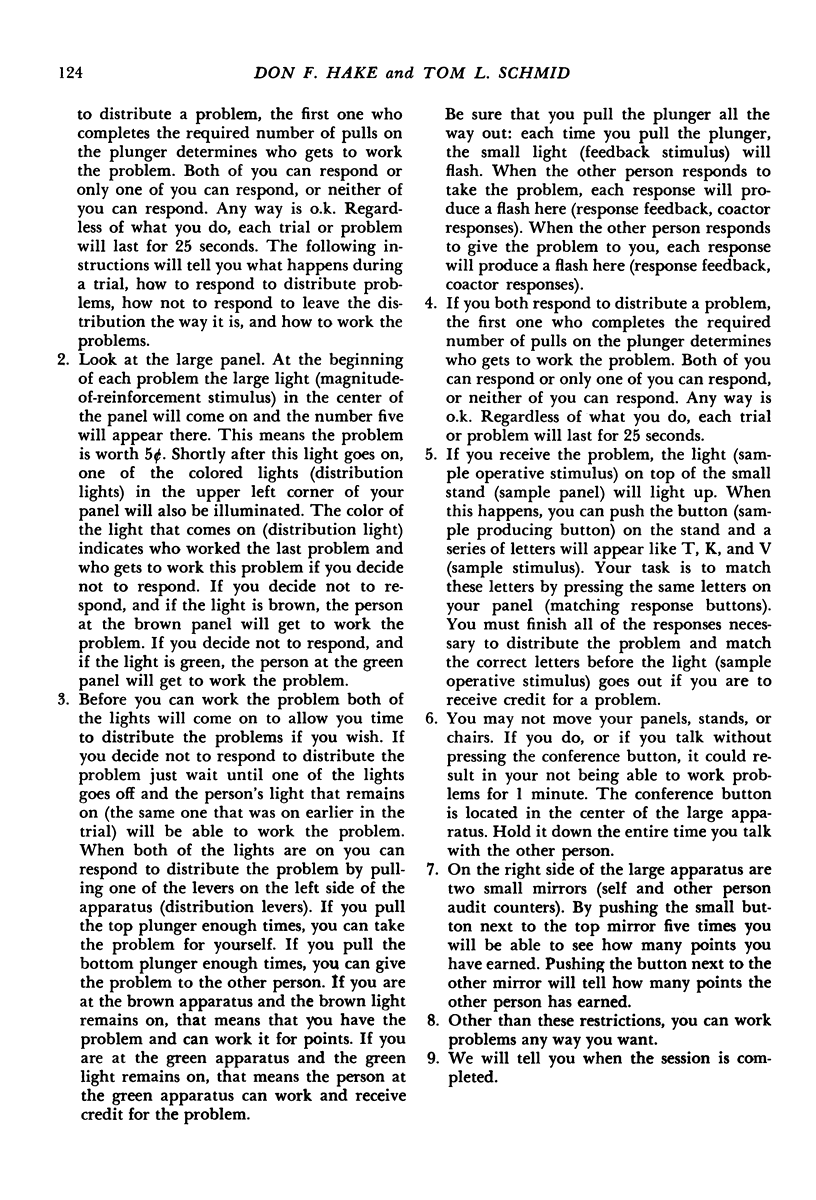
Selected References
These references are in PubMed. This may not be the complete list of references from this article.
- Hake D. F., Olvera D., Bell J. C. Switching from competition to sharing or cooperation at large response requirements: competition requires more responding. J Exp Anal Behav. 1975 Nov;24(3):343–354. doi: 10.1901/jeab.1975.24-343. [DOI] [PMC free article] [PubMed] [Google Scholar]
- Hake D. F., Vukelich R., Kaplan S. J. Audit responses: responses maintained by access to existing self or coactor scores during non-social, parallel work, and cooperation procedures. J Exp Anal Behav. 1973 May;19(3):409–423. doi: 10.1901/jeab.1973.19-409. [DOI] [PMC free article] [PubMed] [Google Scholar]
- Hake D. F., Vukelich R., Olvera D. The measurement of sharing and cooperation as equity effects and some relationships between them. J Exp Anal Behav. 1975 Jan;23(1):63–79. doi: 10.1901/jeab.1975.23-63. [DOI] [PMC free article] [PubMed] [Google Scholar]
- Matthews B. A. Magnitudes of score differences produced within sessions in a cooperative exchange procedure. J Exp Anal Behav. 1977 Mar;27(2):331–340. doi: 10.1901/jeab.1977.27-331. [DOI] [PMC free article] [PubMed] [Google Scholar]
- Olvera D. R., Hake D. F. Producing a change from competition to sharing: effects of large and adjusting response requirements. J Exp Anal Behav. 1976 Nov;26(3):321–333. doi: 10.1901/jeab.1976.26-321. [DOI] [PMC free article] [PubMed] [Google Scholar]
- Shimoff E., Matthews B. A. Unequal reinforcer magnitudes and relative preference for cooperation in the dyad. J Exp Anal Behav. 1975 Jul;24(1):1–16. doi: 10.1901/jeab.1975.24-1. [DOI] [PMC free article] [PubMed] [Google Scholar]


